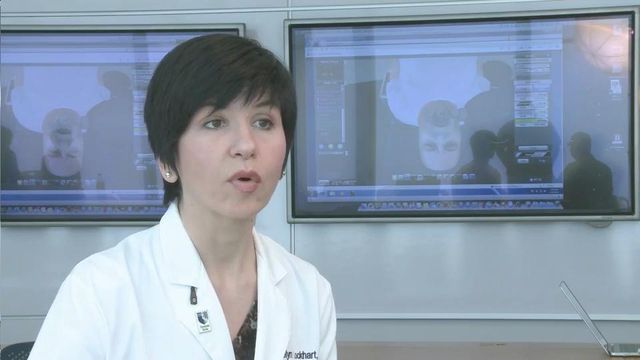Computer simulations allow doctors to learn skills with less risk
Medical students at Duke University are using a new virtual game-based tool to learn from their mistakes without a life depending on it. With the latest in life-like patient simulation labs, healthcare students and professionals can get hands-on experience in making life-saving decisions.
Posted — UpdatedMedical students at Duke University are using a new virtual game-based tool to learn from their mistakes without a life depending on it.
With the latest in life-like patient simulation labs, healthcare students and professionals can get hands-on experience in making life-saving decisions.
For students without access to those labs, a gaming system simulates the technology.
“So what this type of platform offers is a way to practice no matter where they are,” said Dr. Jeff Taekman, the director of human simulation and patient safety at Duke.
Taekman says this virtual gaming system – developed by Applied Research Associates specifically for Duke – offers scenarios where a patient’s life depends on teamwork, rapid response and good decisions.
“In this particular situation we can have different providers playing different roles. They can be an anesthesiologist, an OB/GYN, or a nurse, learning without any risk to the patient,” Dr. Allen Mask said.
One simulation tests reactions to a patient who suffers bleeding during pregnancy – a problem that kills 140,000 women every year worldwide.
“It’s important to recognize quickly when a patient needs to be transfused under these circumstances,” said Dr. Evelyn Lockhart with Duke Transfusion services.
“You can see actually the blood loss is starting,” said Taekman.
Participants can get patient feedback and choose appropriate drugs.
Instructors can add unexpected twists.
“Then we actually examine the patient,” said Taekman.
Another simulation offers a patient who needs surgery to restore broken bones in his ankle. Missing one step in his sedation can cause death – unless doctors act quickly.
“You see he’s developing a rash – and his blood pressure will drop here,” Taekman said.
Game designers can always introduce new twists and new scenarios so that real patients stand a better chance of surviving life-threatening complications.
Mask also says the game system will collect data on the good and bad decisions made by game participants so that medical educators can focus their teaching on problem areas.
Copyright 2024 by Capitol Broadcasting Company. All rights reserved. This material may not be published, broadcast, rewritten or redistributed.





